Marty Baron on the future of news: Less entertaining, more engaging

- Oops!Something went wrong.Please try again later.
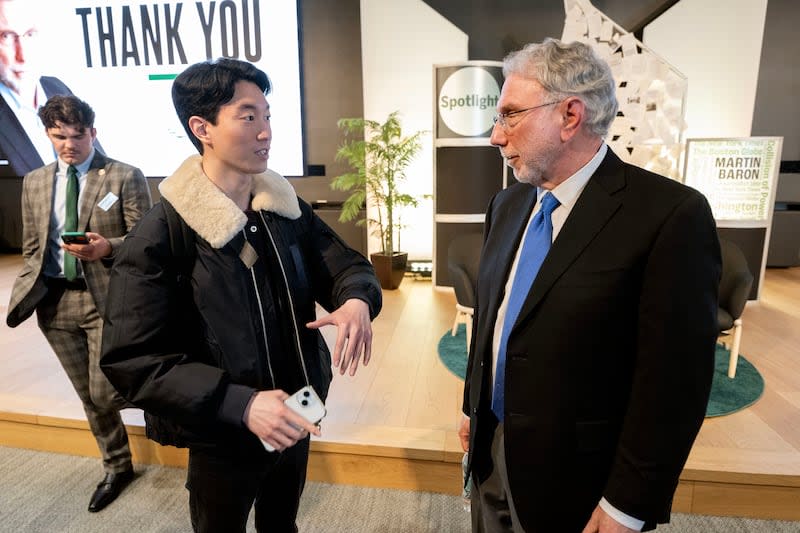
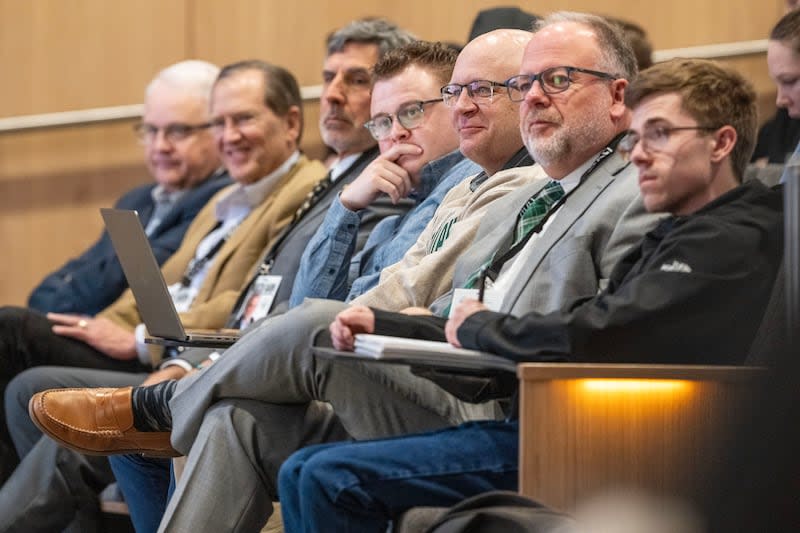
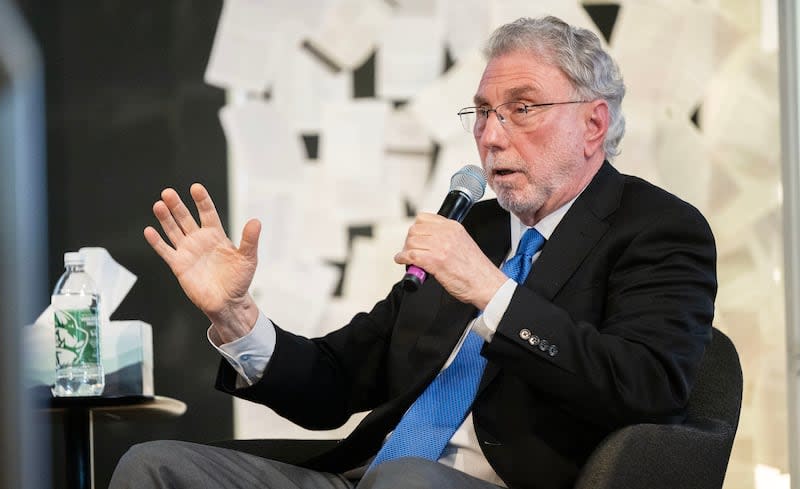
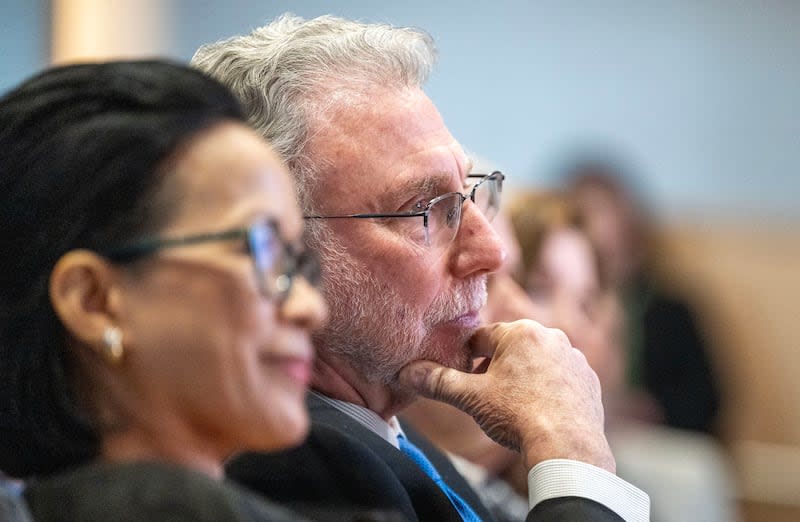
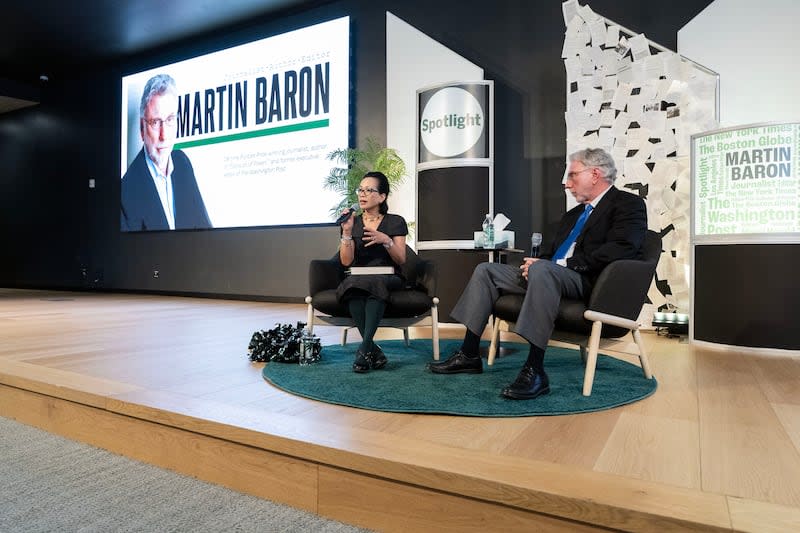
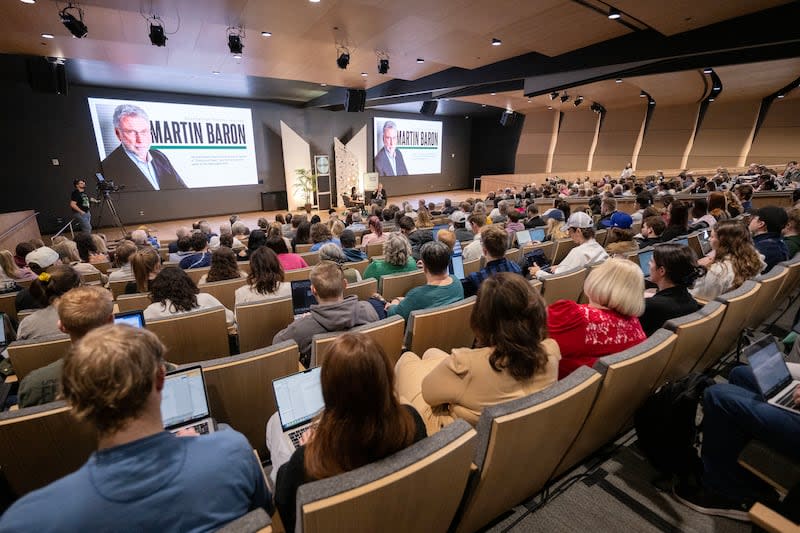
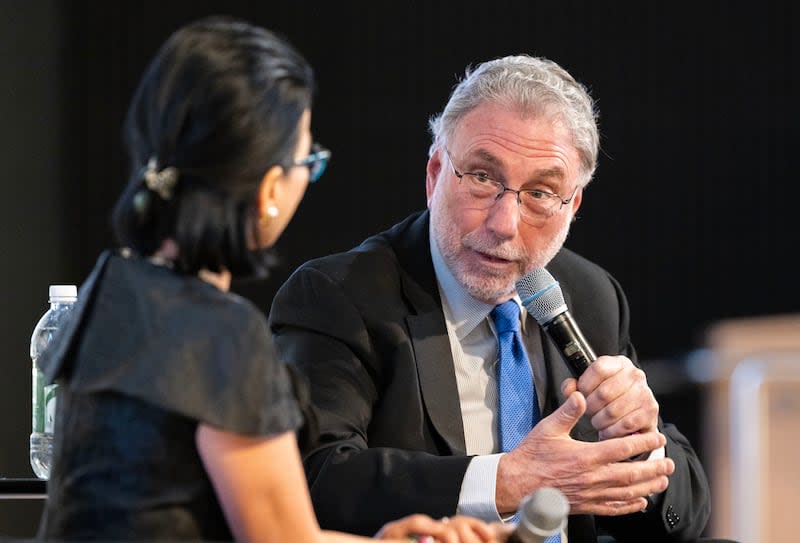
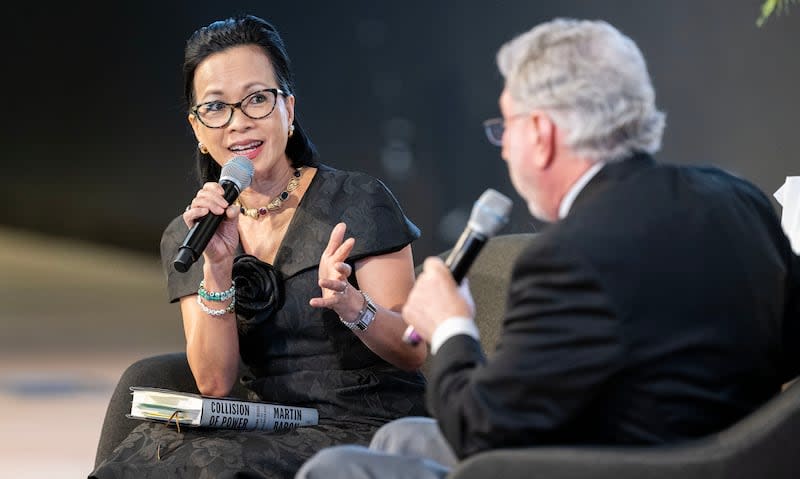
When Jeff Bezos bought The Washington Post for $250 million in 2013, he took an immediate interest in the organization’s operating side. He obsessed over subscriber metrics, toying with the language in renewal notifications. He adjusted the colors on the website to better engage readers.
But when it came to the paper’s chief output, its journalism, Bezos took a hands-off approach. He gave a simple piece of instruction to Martin Baron, who had been the paper’s editor for less than a year: “Don’t be boring.”
It’s one of many anecdotes Baron told Utah Valley University President Astrid Tuminez during a forum on Tuesday morning. Baron said the advice shaped his time at The Post, during a time when many media outlets defaulted to playing the role of entertainment. Baron, instead, decided to focus on engagement.
“We certainly should be able to tell stories in ways that people are interested in,” Baron said. “And that’s on us to be able to figure out how to do that. But I don’t think we should be strictly performative.”
Baron, a Pulitzer Prize-winning reporter and editor, released a new book last year, “Collision of Power: Trump, Bezos, and The Washington Post.” As the title suggests, it focuses on the many public and private tensions between The Post’s ownership and the Trump administration.
Baron served as The Post’s editor from 2012 to 2021. Before, he was editor of The Boston Globe from 2001 to 2012, where he oversaw the paper’s coverage of the Catholic Church’s sexual abuse scandal, winning a Pulitzer Prize and portrayed in the movie “Spotlight.”
A major theme of Baron’s new book — and, in turn, Baron’s conversation with Tuminez — is the proper role of the press in American society. “The press is under a tremendous amount of pressure today,” Baron said. “Public approval of the press is at a very low level.”
That decline, Baron noted, accelerated during the Trump administration, when the former president repeatedly referred to journalists as “the enemy of the people.” Some of that lack of trust was earned, Baron admitted — “I do worry when too many journalists think they have moral clarity” — but some of it signaled a turn toward anti-democratic norms.
“The press depends upon a democracy,” he said. “We can’t exist without a democracy. But the democracy can’t exist without us, either.”
The role of journalists, then, is an essential one, he said. Baron explained that there are three common views of the role of the media: moral clarity, neutrality and objectivity. Baron is suspicious of neutrality, because it lends to false equivalence. He’s doubtful of moral clarity, too, because it often leads to a misplaced sense of self-righteousness and can differ from person to person. The best path for journalists to take, then, is one of objectivity.
“It’s a recognition that each of us all have our own opinions, that we all have our preconceptions,” he said. “If we’re going to do our jobs properly, we have to get beyond that. We have to be willing to open ourselves to other views. ... We should approach our jobs much as a scientist would, who engages in this dilemma. We think we’ve got a hypothesis, but you must test it against the evidence.”
This requires a certain degree of intellectual humility — a recognition that one does not have all the answers.
“I worry that too many journalists are assuming that we know the answers before we’ve even done the reporting,” Baron said. “The question I have is, what do you need by reporting?”
Baron acknowledged that there are significant headwinds pushing against the journalism industry. Technology is rapidly changing how people consume news. We live in a digital age, where people have shorter attention spans and prefer visual information.
“People think that they’re getting information by watching, let’s say, a 15-second video of what’s happening in the Middle East, and now we understand the Middle East,” Baron said. “We’re going to figure out how we essentially get people interested in reading the bigger story or watching the bigger story by basically laying out the appetizers, hoping they’d like to have the four-course meal.”

